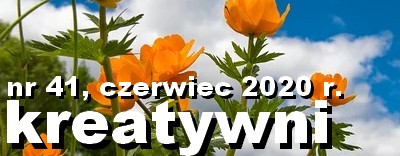Reading the book, I had impression that the author was looking for mitigating circumstances for the genocide that the Banderites committed against Polish community in 1943. There’s a suggestion that it wouldn’t have happened if Polish nobility hadn’t opressed Ukrainian peasantry. Finally, the peasants were fed up with exploitation, oppression and bad treatment. They decided to grab shovels, pitchforks, axes and repay Polish masters for years of abuse.
Master’s behaviour towards a peasant deserves the greatest condemnation. No one has the right to opress anyone. We should find value in every human being. We should never feel better than the others just because we have more. I also believe that the despicable treatment of a peasant who has worked hard for his master, so that a master can find time to shine with his intelligence in company and savour the taste of bread, is like spitting in the face of your own parents. So the "masters" gave their own testimony. Of course, not everyone was bad; unfortunately vanity was a common disease of those times. The peasant was a toy. What would a master do without a peasant? The peasant was better and more important than the master – he coped in the worst conditions. A master was in pain when he had to bend down to get his hat which fell to the floor. So could the peasants feel worse? On the contrary, they should have felt proud.
It seems to me, however, that the "mitigating circumstances" in relation to the genocide carried out on innocent people (after all, the banderites didn’t kill masters “better” than themselves but neighbours with whom they had been friends for years), are wrong. It's like justifying the sentences of Stalin who sent to the labour camp the "enemies of the people” to whom nothing has been proven – one could say that he did the right thing to convict them, because what if they actually turned out to be enemies? Better prevent than risk.
The author emphasizes that it was Poland's policy towards Ukrainians that caused anti-Polish sentiment among Ukrainian society. I agree that politics can cause a lot of controversy and that may have been the case here. However, I ask what part of this policy the volhynian Poles had, many of whom were also hosts and knew the hardships faced by the peasants. They lived in friendship with their Ukrainian neighbours. What was the guilt of women whose main concern was childcare and feeding the family? And babies strapped to tables with knives so they couldn't be removed? Ukrainian neighbours killed them all just because Polish masters mistreated their ancestors? Or was it because they were Poles who had to be rid of in order to cover all traces of Polishness in Volhynia? Because according to peasant reasoning, as the author points out, if there are no Poles in the disputed territory, they won’t have right to claim these lands? The Ukrainians wanted Volhynia and Galicia to be part of the new Ukrainian state after the war.
There’s no excuse for Polish masters and nobles of the 19th century who by their despicable conduct humiliated Ukrainian population. I’d like to stress, however, that the nobles weren’t only Poles but also Russians. A master felt better than a peasant, whether he were Polish or Russian. I’d also like to add that the peasantry included not only Ukrainians – also Polish peasants were oppressed by their countrymen; men were abused, beaten, humiliated and women were raped. It turned out, however, that in the Right Bank Ukraine which the author discusses, the majority of the nobility were Poles and the peasant minority were Ukrainians. It seems to me, however, that in the master-peasant relationship it wasn’t nationality that mattered but the state of possession, pride, vanity and stupidity.
There’s no excuse for the 20th century banderites who in the name of their ideas (to reclaim the land and to get revenge for the past) killed and encouraged to kill Poles, including simple people like them.
What does it mean that a peasant was a toy? It means you could beat him but not kill him to be able to beat him again. You could collectively rape any peasant. It was also possible to rip out pieces of his skin with heated tools, pour cold water on him, starve him, lock him in a dark room... This way the only breadwinners of the family who had previously faithfully served the master and paid tribute to him also in nature (among other things, peasants had to give away some of their crops, pay for their weddings and christenings; they worked so hard that they were left with only holidays and nights to manage their own farm.) were often killed. So, can we wonder that the peasants were catching Polish insurgents and handing them over to the Russians? No. Is there any wonder that terror has increased because of this? Neither. Hate is like a virus, it spreads very quickly if no one responds to it in time. Unfortunately, the tsarist authorities didn’t react; they dragged the peasants to their side making Poles angry but they didn’t take any action that would normalize relations between those nations.
As a result, as early as 1847 the peasants wanted to start the "slaughter of the masters" but masters fled under the protection of Russian troops. Poles couldn’t feel safe in their home when the peasants started actions against the insurgents - supposedly even women committed wild barbarism... But what was the "master’s" hope if they committed atrocities against the peasants? While the banderites carried out an unjust sentence, Ukrainian peasants showed their torturers what it meant to be humiliated. All this led to the fact that the peasants didn’t respect even the masters who were sympathetic to them.
Former UPA soldier, historian Prof. Petro Potichniy believes that "the anti-Polish action in Volhynia and Eastern Galicia was senseless, criminal and brought a bad reputation to Ukraine". It seems, not every fighter in this formation was a mindless killing machine.
Another former UPA soldier, Myroslav Prokop, argues that "killing of innocent people cannot be justified in any way" and that the killings "require condemnation from both nations."
The author concludes that he doesn’t advocate for either side – he’s a proponent of the theory that in this conflict everyone is slightly guilty. He can understand the cruelty of the peasant towards the evil master but he doesn’t understand and justify the murder of innocent Poles, women and children by UPA troops and the principle of collective responsibility applied by the Polish side towards Ukrainian civilians. I'm of the same opinion.
Poles shouldn’t be proud of their ancestors who cruelly treated people in worse situation than them. It's one of the dark pages of Polish history.

